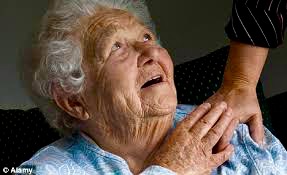
Typical Signs of Dementia
1. Short Term Memory Loss:
Everyone nervously laughs when they walk into a room and can’t remember the reason for doing so, but short-term memory loss is a far different matter and is a telltale indication of possible dementia.
Short-term memory loss is typically the first symptom that others pick up on and typically relates to items such as:
• Repeatedly asking the same question
• repeatedly telling the same story or joke
• seemingly having a long-term memory, but subject to verification.
2. Depression
• Many seniors suffer from depression and the difficulty with a demented person is that they may not realize they are depressed. Signs of depression can be loss of interest in activities, hobbies, and other people, trouble concentrating, isolation and general apathy.
3. Anxiety
Anxiety and general agitation can be caused by a number of different medical conditions, but anyone who is suffering from dementia is experiencing a profound loss of their ability to understand and function properly, and thus it can be frightening and anxiety provoking. Changes in residences, environment, caregiver arrangements, and other related matters can cause confusion and anxiety.
4. Difficulty Finding Words or Communicating
• People with the most common types of dementia, such as Alzheimer’s disease and vascular dementia often have aphasia, which can cause difficulty in finding words, and remembering the names of people they know well.
5. Reasoning and Problem Solving
• The accumulated effect of the decline in communication, learning, remembering, and problem solving may occur either quickly or very slowly over time depending on which area of the brain is affected.
6. Difficulty Performing Common Tasks
• having dementia can make many everyday tasks increasingly problematic. This can range from everything from choosing your clothing and dressing oneself to using a coffee machine and everything in between. After having performed many of these tasks innumerable times, it suddenly becomes problematic, and many people begin to hide their problems at this point.
7. Coordination and Motor Impairment
• similarly, many common tasks such as buttoning a button, removing the lid, or even chewing and swallowing can become increasingly difficult
8. Confusion and Disorientation
• In the earlier stages, the confusion and disorientation may be quite mild, but will typically become more severe over time, so that it can become difficult and recalling recent events, making decisions or understanding what others have stated.
9. Personality Changes
It is not uncommon for passive people to become more violent or other such notable significant personality changes.
10. Inappropriate Behavior
It is not uncommon for demented people to act or talk inappropriately, such as saying hurtful things to loved ones .
11 Paranoia
It is not uncommon for demented people to become suspicious of those around them, and accuse them of theft of items such as a saucer or cup, or alleging infidelity or other improper behavior.
12. Spatial Problems
• Getting lost while driving is often an indication of a confused mind. The degree of the demented is probably worse if one becomes lost in their own neighborhood




